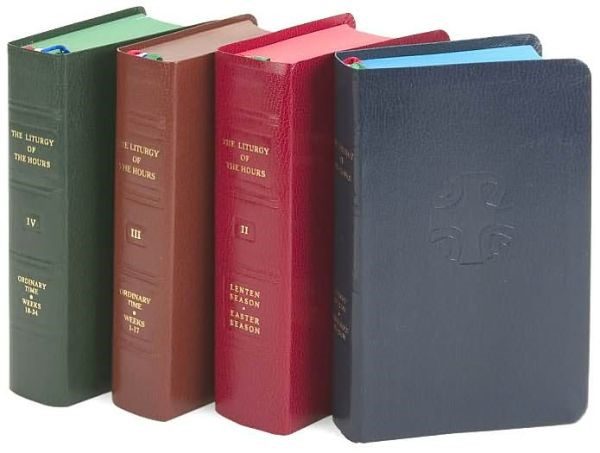By: Kyle McClure, Seminarian
The Church has a long tradition of praying the psalms. In fact it comes from Jesus himself who often prayed and referenced the psalms. The new testament is shaped by the theology and spirituality of the psalms. Theologian Michael Barber comments, “The Psalter is, by far, the Old Testament book quoted most frequently in the New Testament.”[1] If the psalms are so important, how do we pray them as a Church? Outside of the celebration of the Eucharist, the Church’s main way of praying the psalms is in the liturgy of the hours. There are seven hours available to pray each day. The liturgy of the hours are the communal prayers of the Church. The Church joins in to Christ’s prayer to the Father. The letter to the Hebrews describes this life of prayer saying: “During his life on earth, he offered up prayer and entreaty, aloud and in silent tears, to the one who had the power to save him out of death, and he submitted so humbly that his prayer was heard (Hebrews 5:7).” Therefore, the liturgy of the hours sanctifies the day by uniting the moments to Christ’s own life. Moreover, when we pray the liturgy of the hours we are praying several psalms as well as other prayers in scripture. Saint John Paul II talks about these prayers educating us so we don’t remain with a shallow prayer life. The psalms lead us to a more intimate knowledge of Christ. The Fathers were firmly convinced that the Psalms speak of Christ and, therefore, by praying them we gain get to know Christ’s own prayers. Second,we as the Church are
striving to pray without ceasing. St. Paul encouraged the early followers to
strive to pray always. In order to pray always we must have set times of prayer
through out our day to aid us. These set moments of prayer connect the times in
between them to God by giving a rhythm which turns us to God. Saint John Paul
II says: “Giving their prayer this rhythm, Christians responded to the Lord’s
command “to pray always” (cf. Lk 18: 1; 21: 36; 1 Thes
5: 17; Eph 6: 18), but without forgetting that their whole life must,
in a certain way, become a prayer.” The early Church developed the liturgy of
the hours as a means to pray at all times. They added the Our Father and the
Glory be Prayers to adapt the Jewish prayers into the Christian community. The
wisdom of the Church can guide our search for deeper prayer.
[1] Scott Hahn, “Introduction,” in Singing in the Reign: The Psalms and the Liturgy of God’s Kingdom (Steubenville, OH: Emmaus Road Publishing, 2001), 11.


